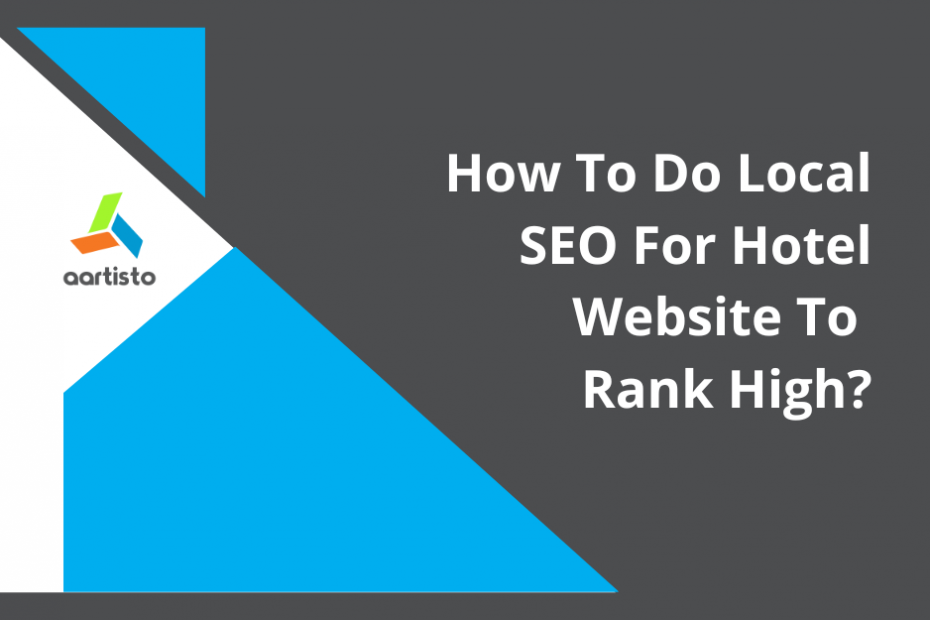What Factors Determine a Hotel’s Local SEO?
The main factors that determine a hotel’s local SEO are reviews, business name, website content, and links to the website. Let us discuss each component separately.
Reviews
Reviews are one of the primary criteria for local SEO rankings. Like any company, Google wants to serve the needs of its customers, including recommending companies that receive the best reviews.
Consistent Business Name and Details
Your business name is one factor that helps you rank in local SEO for hotels. Take advantage of free online listings like Google My Business, Facebook, and Bing. Make sure your name, address, phone number, and URL are consistent and across as many sites as you can.
Your Hotel Website’s Content
In addition to providing visitors with the information they need, the copy on your website also plays the role of “telling” Google what your website is about.
For single-location hotels, your homepage should include keywords related to your location. Multilocation hotels should have a separate page for each location that can be ranked separately.
Link Profile of Your Hotel’s Website
Building internal and external links is essential to SEO success.
Building internal links is a great way for Google to determine which pages of your site deserve to be ranked the most.
10 Tips to Improve Your Hotel’s Local SEO
Considering the factors that determine a hotel’s local SEO, here are 11 tips to help you rank and increase Google’s top local hotel list.
Create a Keyword Planner
The Google Ads Keyword Planner tool helps you generate relevant keywords. You’ll be able to get key ideas and difficulty ratings to help inform content strategy. It’s free, try it now.
Optimize Your Hotel’s Google My Business
Another free tool that can significantly improve your SEO for hotels is Google My Business. It is a necessary requirement to appear even in the map pack.
Google My Business will enhance your profile on Maps with high-quality photos and information about your hotel’s availability, amenities, and prices because it wants to fully complement the searcher and display the most informative and useful results possible.
Optimize Your Hotel Website’s On-Page SEO
A central concept in improving your website’s on-page SEO is using relevant keywords in your website copy.
Ideally, you should use your primary keyword in a heading (H1) and a subheading (H2). It only appears twice every 100 words, but should be on the low end if possible to avoid keyword stuffing.
Build Links to Your Hotel’s Website
Build internal and external links to your website. Internal links help Google determine the pages you need, and it prioritizes these pages. The more external links you have to your hotel’s website, the more reliable Google will see you for specific keywords.
Collect Reviews
As mentioned earlier, reviews help you rank better on Google. Here are some ways to get more reviews from your satisfied customers:
- Use CRM to automate review emails once someone checks out of your hotel.
- Designate one of the employees at checkout to verbally encourage a positive review
- Add links to your website that allow customers to review your business.
- Use your social media pages to ask customers for reviews.
Create Local Content
While creating generic content about your products and services is essential, it’s also important to post local content from time to time to strengthen your brand image. For example, you can post about events related to local sports teams or events near or local to your hotel.
Fix (and Monitor) Technical SEO Issues
To get the best user experience, make sure your site takes these factors into account:
- Loading time. Most people will leave the site if it doesn’t load completely within a few seconds.
- Broken links. If your site has too many broken links, Google will go to another source.
- Confused URLs. Confused URLs can make your site look disorganized. Use this space instead of your keywords.
Improve Your Hotel Website’s UX/UI
When it comes to website design, you need to know about UX/UI. UX stands for User Experience and UI stands for User Interface. Your website should provide the best UX/UI for your readers. Here are some factors that influence this:
- Easy navigation
- Aesthetically-pleasing layout and colors
- Being easy to read
- Contain relevant information
- Being mobile-friendly
- Functional links
Audit Your Site’s Internal Linking
Internal links help Google identify the most important pages on your site and what role each page plays. Make sure your linking pages are clear and easy to understand.
Track All Website Visitor Metrics
The first step to tracking all data and metrics is to set measurable and realistic goals. For example, to rank in the top 3 searches on Google in the next six months. Not having a plan can lead you to aimlessly do various things.
